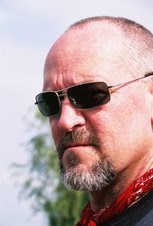What a crock...it simply isn't true.
The sad part is that this myth has caused a whole host of folks to jump on the "low-intensity training" bandwagon and struggle for years, with their only conclusion being "I'll never lose weight", all because of this inherently flawed system and failed program.
Research in the last 10 years or so has demonstrated a couple of highly significant findings with respect to exercising for fat loss.
- When you increase the resistance load in training (by lifting heavier weights) you cause the body to use more fuel AFTER the training session than if you lifted lighter weights. This is why one of the tools we incorporate into the 28 Day Miracle Fat Loss Program is to lift a heavier weight for 8 solid reps in each set of exercises (for fat loss) as opposed to 12 reps per set of a lighter weight. We do in fact use a 12 rep scheme, but it is set up in another fashion so as to utilize another effective tool for fat loss.
- Because of TONS of research we now have solid proof that interval training style cardio is far superior to slow, steady cardio for fat loss, as well as post-exercise fuel consumption. Therefore it just makes sense that using shorter duration, high-intensity interval training (HIIT) in your routine rather than slow, long cardio sessions (like walking 30 minutes on a treadmill) is more effective, efficient and more time friendly.
In my humble opinion, the only time you might even consider your heart rate in the exercise realm is during the recovery period while you're interval training. You need your heart rate to drop, a lot, between sets of interval training. It's important when the time comes to step it up and move during the "high intensity" portion of the training that you have gas in the tank enough to do so. It makes no sense to begin your high intensity interval too quickly and you should strive to make the recovery portion of your interval just enough work where you're still moving...but able to recover as well.
Here's the bottom line:Worry not when it comes to your heart's rate during exercise. I know, some folks are just "goofy" and like to keep statistics on things like that and that's fine. Just understand it has no real value in terms of fat loss. I would suggest that you spend more time determining if you're really pushing yourself enough while doing the "high-intensity" portion of both your resistance training and interval cardio sessions.
SP
Steve Payne is San Antonio's premier fat loss expert. If you're really serious about fat loss, then please consider San Antonio's finest fat loss "boot camp", the Firestorm Fitness Systems Fat Burning Fit Camps, The 28 Day Miracle Fat Loss Program or you can e-mail Steve here for more information on his many GUARANTEED success programs. And please visit http://www.safatloss.com/ today.

